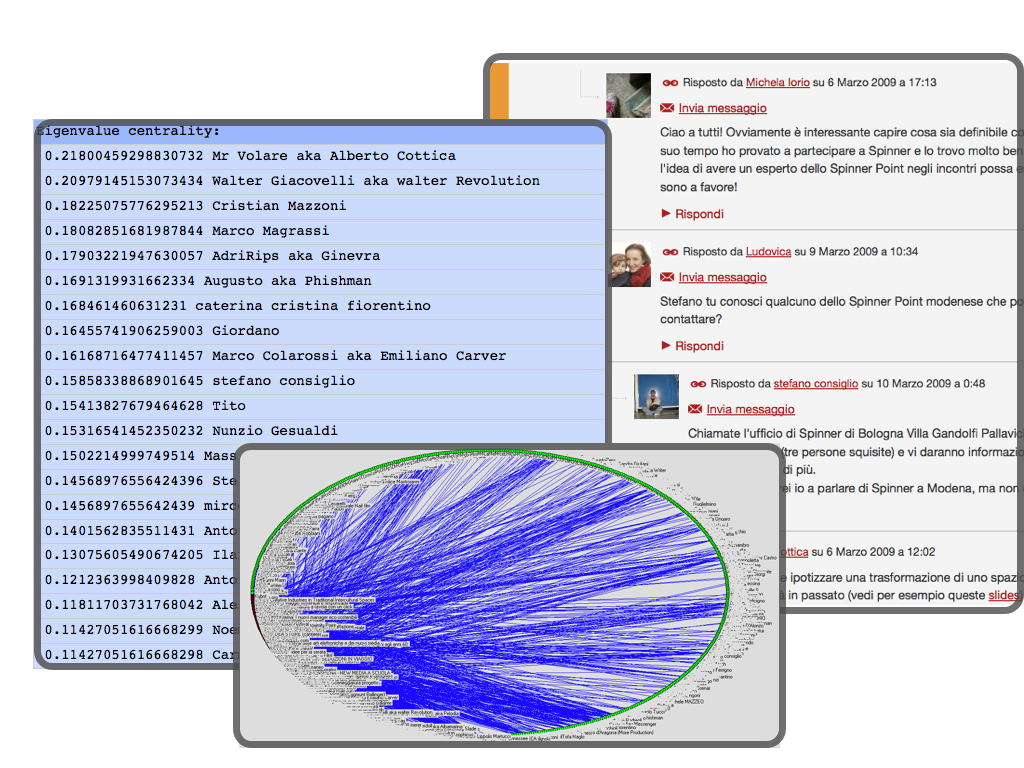
Public Services 2.0 turned out to be really exciting. Of course I knew most of the projects out there, but it was good to get to meet the people behind them in person and to get their vision behind the projects themselves.
Regularities surfaced. For example, participants in policy-oriented social network are regularly more constructive than you would expect (half the messages in PatientOpinion are to say thank you – this on a highly sensitive government area like the National Health Service and with anonymous posting). Also, most projects emphasize collaboration, but there is a great deal of competition as well; Social Innovation Camp is structured as a beauty contest; we have our own Kublai Award; and everybody does metrics, “karma systems” of some sort to acknowledge active membership of the community. Networks seem to have a number of interesting properties that are emergent: they cannot be well understood just by looking at the level of the participating agent. They sometimes seem to have a will of their own: both Savvy Chavvy and Kublai evolved towards uses quite different from the ones they were designed for.
If networks are entities (I suspect they may in fact be complex systems, and that some of the complexity math could apply) and not just ways to connect nodes, then just what are we are doing here? We are deploying services and doing policy, that’s for sure. It’s not macro policy – we don’t manipulate aggregates like public consumption. And not micro policies either – we don’t tweak incentives for individual agents, like tax rates. It’s meso policy; and that’s a pretty unchartered territory so far. In a policy oriented social network, their creators enjoy in their turn somekind of meso status; we do not wield coercion power (macro), but it certainly cannot be said we are just users among users (micro). We work by meso tools: moral suasion, reputation management, expanding islands of rules for local interactions that generate “flocking behaviour” (like “when you log in, take a minute to say hello and welcome to the newly registered members”) – hell, even parties in Second Life! It’s an entirely new territory, that must be chartered; and the crowd that David, Lee and Dominic gathered in Brussels seems the most likely candidate to do it. So let’s get down to it!
(More related posts, videos etc. here)
thanks alberto. this stimulates many thoughts but let me just mention one. The workshop itself was a mesolevel event. We had no money, did no invitations. We leveraged our reputation, our contacts. We aggregated individual, personal interest and people on similar wavelength. We created extended participation through free tools such as twitter.
The result is an impact dramatically higher than what you usually had with traditional EC workshops. Crucially, we were able to reach the PERSONAL interest and engagement of people inside the institutions.
Can we model and replicate this? can we sustain this collaboration? What should government do to make this happen?
Many thoughts open – collaboration is just at the beginning.
PS by the way your presentation was one of the best of the day according to many. your mention of consultants of local development reflected 100% what is happening with EU research projects.
Pingback: Hacking the European Commission « Benchmarking e-government in web 2.0
Alberto I hope you do not mind if I use your blog to collect my random thoughts on mesolevel.
I would add two concepts (with long history) we should link to discussion on mesolevel:
– reputation
– social capital
Web2.0 makes these two concepts more important in policy making. And it makes them more traceable.
Just random unstructured thoughts, sorry! More later.
David, that’s actually what blogs are for! Very good. I’ll think about it.
Pingback: inca09 as policy to create social innovation « Benchmarking e-government in web 2.0
Pingback: Internazionale: la conversazione globale delle amministrazioni 2.0 » Contrordine compagni